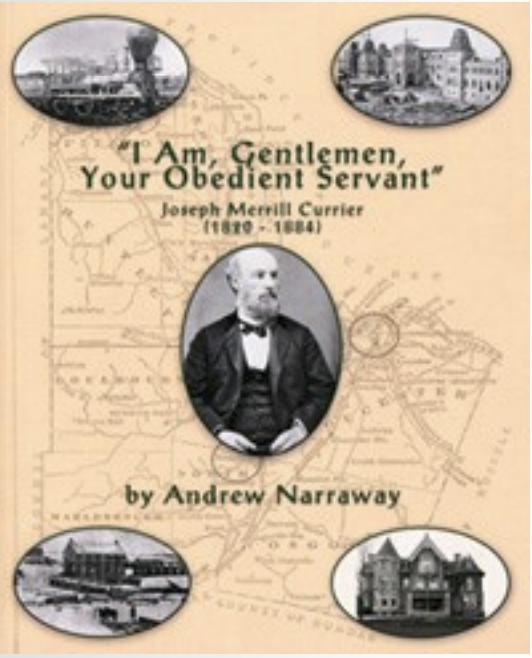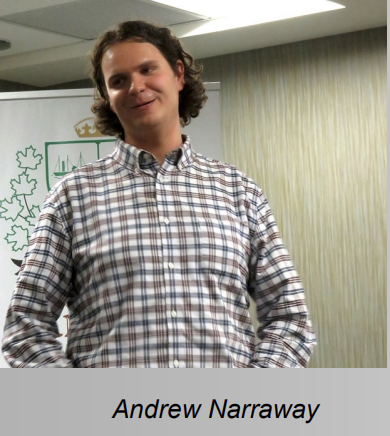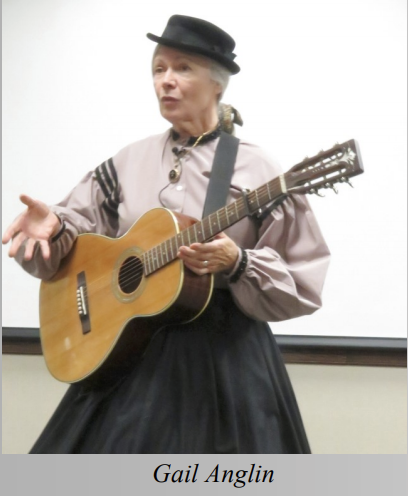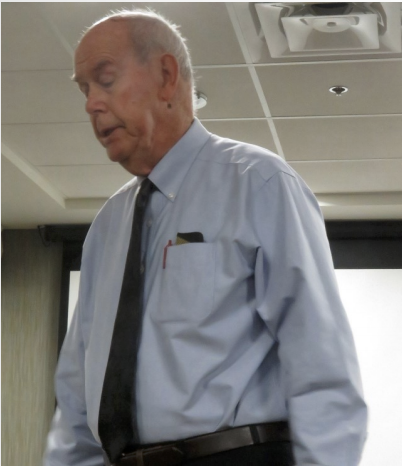I am, Gentlemen, Your Obedient Servant
Presentation by Andrew Narraway & Gail Anglin. Article by Susan McKellar, Photos by Owen Cooke. November, 2019.
The program of the October RTHS meeting featured lots of discussion about Joseph Currier. Bill Tupper introduced Andrew Narraway, author of the just-released book, “I am, Gentlemen, Your Obedient Servant”: Joseph Merrill Currier (1820-1884), and gave some background on his academic career and subsequent jobs.
Andrew then talked about how he came to write the book. He was hired by RTHS in the summer of 2018 to follow up on extensive research carried out the previous summer for RTHS by Hannah Blaine, and to write an essay. Andrew delved into it, and did more research at Library and Archives Canada, then started the process of writing. He met with Bill Tupper weekly to go over his work. (He was in the middle of writing his master’s thesis at the time.) He finished the essay that summer, then it became a book! (Ron Wilson subsequently edited the book, added illustrations and oversaw the printing process.)
Bill then introduced Gail Anglin, a member of Ottawa Storytellers, who was in appropriate costume, complete with guitar. She proceeded to tell the story of Currier’s life, interspersed with several songs from the era that added greatly to the atmosphere.
Briefly, Joseph Currier was born and grew up in Vermont, U.S.A. As a young man in search of adventure and work, he came to Buckingham, Quebec, and found work at a sawmill there through Horace Merrill, a family friend. Gail set the scene with the Logdriver’s Waltz. Currier managed Bigelow’s sawmill for ten years, then Thomas Mckay asked him to come to Ottawa to manage his mill, which he did. He was married by that time, with two children. He took on more work, managing other mills and running businesses. He also became involved in community organizations and boards, etc.; by now he had four children.
The song Swamp Fever foreshadowed Gail’s telling of the death of three of his children of fever. Only his second son, James, survived, and within three years his wife Christiana died, supposedly of a broken heart.
Currier decided to leave Ottawa and came to Long Island where he and Moss Kent Dickinson built a sawmill; they expanded their business with other partners and built a grist mill and carding mill. Currier also built a lovely cottage for himself. Another song, A Frog He Would AWooing Go, preceded the story of Currier’s courting of Ann Crosby of Lake George, New York, and their marriage. Tragically, she died of an accident in the mill while still a young woman.
A distraught Currier left Manotick and went back to Ottawa, where the elites welcomed him back into society. He was elected as a Member of Parliament and was also active in Ottawa life. He married Hannah Wright and built the house at 24 Sussex Drive for her. 500 people attended their housewarming party! He established Beechwood Cemetery and continued in business, but after a scandal his businesses took a downturn and he became destitute (MPs were not paid at that time). He then found a paid position as Postmaster General of Ottawa. He died of tuberculosis at age 64, and was buried in Beechwood Cemetery.
Gail restored our spirits with the rendering of The Night John Willie Took His Ferret To A Do; the lyrics started with the line “I was there, so were you, the mayor and the vicar, all the council too”. Her story was followed by several questions and discussion, including the Ottawa Storytellers’ activities, and the introduction of two Currier descendants present, Brian Hull and Barbara Armstrong. Bill then thanked Andrew and Gail for an interesting, entertaining evening, and the crowd enjoyed refreshments while several purchased copies of the book, signed by the author of course.
Bill Tupper conceived the idea for this book and led the project to get it written and published. We thank Bill for this excellent contribution to our local, provincial, and national history.




